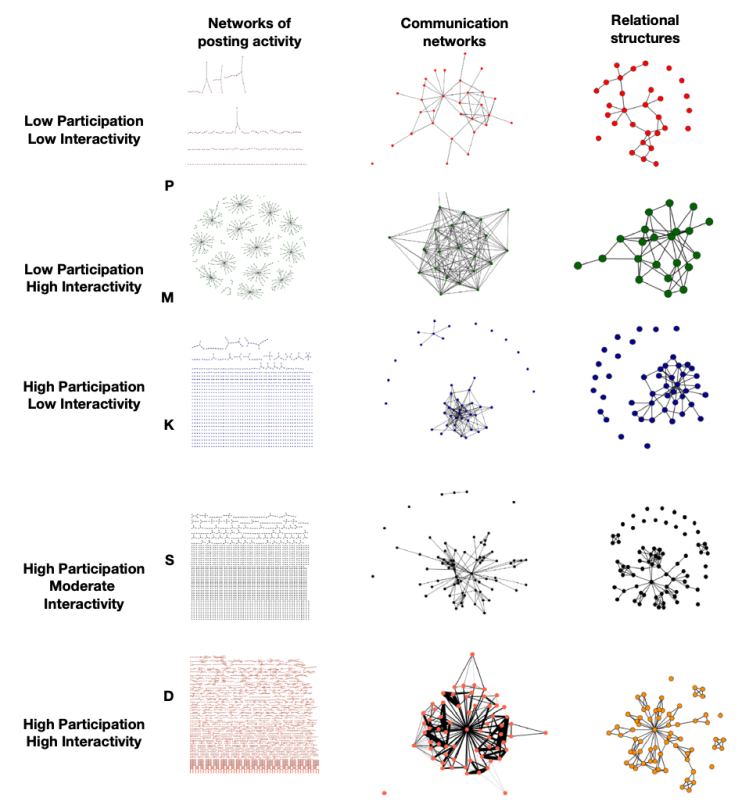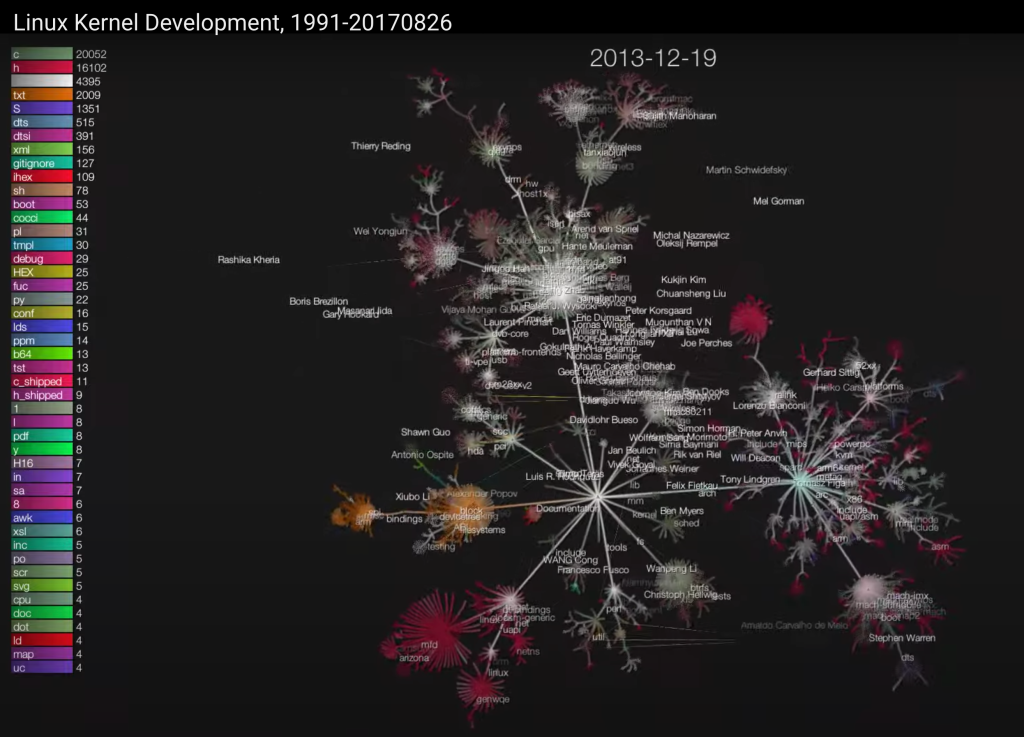
iGEM TIES (Teams IntEraction Study)
In this project we map the social interaction networks of scientific teams participating to the iGEM scientific competition. We collect high resolution team interaction data from digital traces, collaboration monitoring, and surveys to study the network patterns underlying team performance and learning.
Learn more…
Collaborative Learning
We reconstruct learner interaction network from phone calls and digital traces to model the diffusion of knowledge in collaborative learning.
Learn more…


Organization and resilience of open-source communities
This project aims to quantify the organizational principles underlying large-scale self-organized open source communities.
Learn more…
The rise and fall of scientific fields
We use large datasets of scientific publications to understand the patterns underlying the growth and decline of scientific fields and describe the research trajectories of researchers in the knowledge space.
Learn more…


Emergent structures and roles in an online innovation community during a crisis
As COVID-19 emerged in 2020, the OpenCovid19 community, formed by biohackers, quickly grew to thousands, focusing on open-source solutions for pandemic challenges. This community exemplifies an online innovation community, collaborating on problem-solving, design, and knowledge sharing, challenging traditional knowledge collaboration norms. We analyse communication and roles within OpenCovid19 to show how roles change over time and across situations, highlighting the unique collaboration dynamics in crisis-driven online communities.
Learn more…
Collaboration and performance in citizen science projects
In this EU H2020 project, we use digital traces to understand what makes citizen science projects successful and how citizen scientists can provide reliable data for tracking the progress towards the UN Sustainable Development Goals.
Learn more…


Designing recommender systems to enhance collective intelligence
In this project funded by a NESTA Collective Intelligence grant, we develop a network-based recommender system for the open science social platform Just One Giant Lab to match contributors to needs, and explore its impact on community self-organization.

